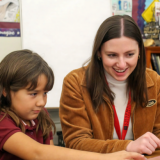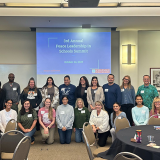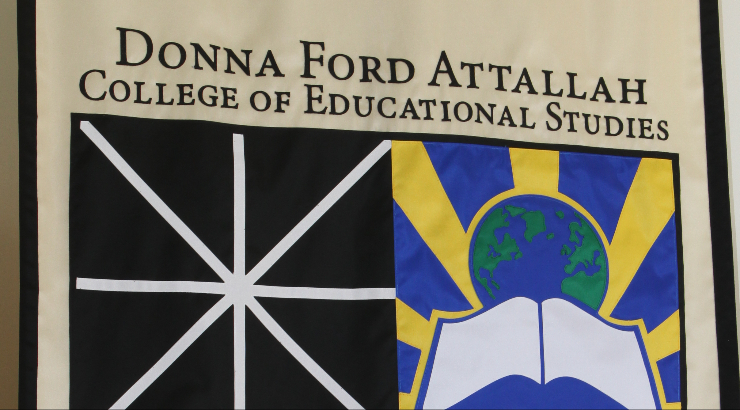
New Attallah Faculty Bring Practical Experience, STEM Backgrounds, and Student-Centered Focus
September 10, 2018
The Attallah College of Educational Studies is pleased to welcome four new faculty this fall: Dr. Ryan Allen, Assistant Professor of Education; Dr. Tara Barnhart, Assistant Professor of Teacher Education in Science; Dr. Sarah Golden, Assistant Professor of School Counseling; and Dr. Angel Miles Nash, Assistant Professor of Leadership Studies.
Following a nation-wide search, each was selected because of how well they augment Attallah programs in terms of research, college leadership, and practical experience.
“I am excited to welcome such a dynamic group of new faculty. Each brings a wealth of knowledge and a vast array of experiences that our students will be able to draw upon. We look forward to working with our new colleagues to strengthen Attallah’s research initiatives and programs,” said Attallah College Dean Margaret Grogan.
Ryan Allen
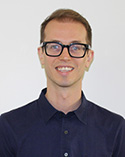 Dr. Ryan Allen will be primarily teaching in Attallah College’s Ph.D. in Education program, but a large part of his role will involve mentoring and assisting the Chinese students studying at Chapman this year as part of a three-year Chapman and Shanghai Normal University pilot program.
Dr. Ryan Allen will be primarily teaching in Attallah College’s Ph.D. in Education program, but a large part of his role will involve mentoring and assisting the Chinese students studying at Chapman this year as part of a three-year Chapman and Shanghai Normal University pilot program.
Before joining Attallah College and moving to California this summer, Dr. Allen taught courses in political science, American history, culture and society, and ethics at Berkeley College in New York City and was a member of the publishing team at the EdLab, a research institute at Columbia University’s Teachers College.
Dr. Allen’s research covers aspects of university rankings, globalization in higher education, international mobility, and educational technology. His teaching philosophy is informed by his own experience as an international student studying at the Yonsei University’s Graduate School of International Studies in South Korea. With an empathy for the unique challenges international students face — visa problems, homesickness, language barriers, isolation, etc. — he focuses on the individual learning experience and making things tangible, connecting theory to real-world experiences.
“When I first saw the Attallah College position posting,” he said, “it seemed like it was tailor-made for my own experience.”
“Chapman is so fortunate to have found Dr. Allen. His passion for international education is a perfect fit for our new Chapman-SNU partnership, and he shares Attallah College’s focus on real-world applicability,” said Director of Ph.D. in the Education Program Dr. Dawn Hunter.
Tara Barnhart
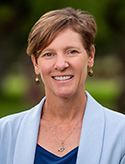 Before joining Attallah College’s Teacher Education program this fall, Dr. Tara Barnhart was a high school biology teacher in Whittier, California, and a lecturer in the Department of Secondary Education at the California State University, Fullerton, designing and teaching graduate secondary education courses.
Before joining Attallah College’s Teacher Education program this fall, Dr. Tara Barnhart was a high school biology teacher in Whittier, California, and a lecturer in the Department of Secondary Education at the California State University, Fullerton, designing and teaching graduate secondary education courses.
Dr. Barnhart’s goal as a researcher is to understand how different teachers notice students’ ideas and reasoning. This type of attention, an attempt to interpret rather than evaluate thinking, opens up a greater range of next moves for teachers and positions students as active knowers and builders of knowledge rather than passive receptacles of content.
She believes the ultimate goal is for teachers to be more responsive to students, both in the ways they design learning experiences and use students’ ideas during instruction.
Dr. Barnhart explained her approach to science instruction focuses on developing scientific reasoning: “The ‘facts’ in science change and grow all the time. What is interesting and important is what we do with the facts to identify problems and design and evaluate possible solutions. This type of critical approach makes for better innovators and consumers of information.”
Sarah Golden
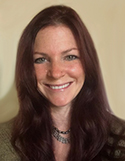 Dr. Sarah Golden comes to the Attallah College graduate School Counseling program after working for many years as a school counselor in California. She has worked with youth in downtown Los Angeles and for a charter school network, where she provided K-12 students with both distance and in-person counseling. She has experience working with a diverse range of student populations in rural and urban environments.
Dr. Sarah Golden comes to the Attallah College graduate School Counseling program after working for many years as a school counselor in California. She has worked with youth in downtown Los Angeles and for a charter school network, where she provided K-12 students with both distance and in-person counseling. She has experience working with a diverse range of student populations in rural and urban environments.
Dr. Golden’s previous research included examining factors that influence school counselors to use online counseling as a counseling intervention. Her other areas of interests and experience include exploring the unique challenges of distance learners, working with diverse populations, the role of technology in counseling, consultation, and crisis counseling and response in schools.
In addition to this professional experience, Dr. Golden has served as disaster mental health volunteer with the Red Cross and as a mental health volunteer working with youth in Rwanda, Africa.
“I have enjoyed my role as a school counselor,” she said. “Now I’m really looking forward to mentoring and teaching the next generation of school counselors here at Chapman and continuing school counseling and mental health work with youth both in the US and abroad.”
Angel Miles Nash
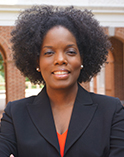 Dr. Angel Miles Nash’s research focuses on the role of school leaders in securing equitable access to STEM (science, technology, engineering, and mathematics) education for Black girls and other historically underserved student populations. Her work draws deeply from her amalgam of professional experiences working in technology and engineering industries, teaching and leading in primary, secondary, and higher education, and producing results in the nonprofit sector. Dr. Miles Nash noted that “these experiences palpably influenced my research as I have been able to witness the ways in which inclusive and engaging school leadership meaningfully impacts students’ learning.”
Dr. Angel Miles Nash’s research focuses on the role of school leaders in securing equitable access to STEM (science, technology, engineering, and mathematics) education for Black girls and other historically underserved student populations. Her work draws deeply from her amalgam of professional experiences working in technology and engineering industries, teaching and leading in primary, secondary, and higher education, and producing results in the nonprofit sector. Dr. Miles Nash noted that “these experiences palpably influenced my research as I have been able to witness the ways in which inclusive and engaging school leadership meaningfully impacts students’ learning.”
As a faculty member in Chapman’s Master’s in Leadership Development (MLD) program, Dr. Miles Nash is currently working within a research-practice partnership, E-Communities. The National Science Foundation-funded initiative connects STEM public school teachers, STEM professionals of color, and university researchers in a national collaborative network that provides in-person and virtual professional development for teachers as well as mentoring for students based on industry problems of practice.
Dr. Miles Nash’s recent work with the University Council for Educational Administration offered her multiple opportunities to identify the overlap between academic enrichment and education policy at various levels of leadership practice among a diverse range of stakeholder groups and organizations. Equally important, this has informed Dr. Miles Nash’s commitment to working to develop and further equitable educational opportunities for all children.
